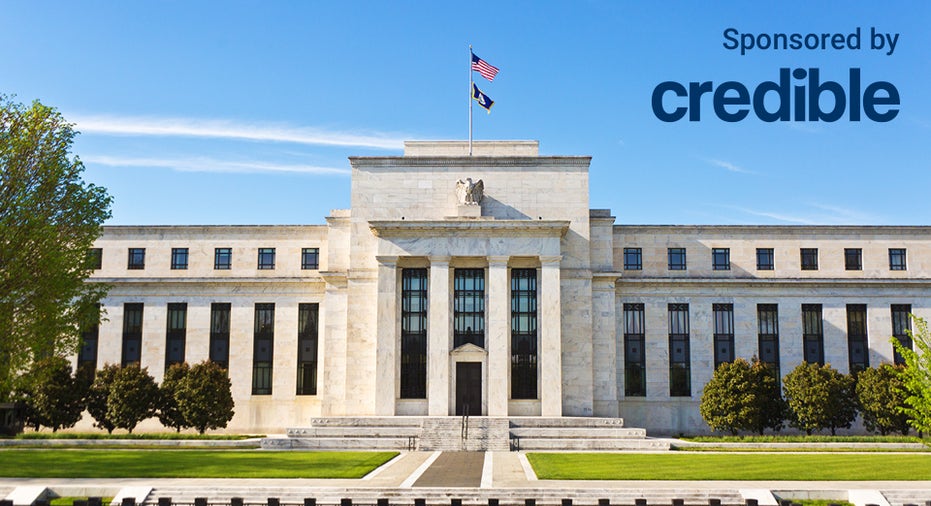Fed raises interest rates 50 basis points, citing improved economic indicators
MBA predicts mortgage rates will ‘end 2023 around 5.2%’ as Fed eases rate hikes

The Federal Reserve announced a widely anticipated smaller interest rate hike at its December meeting. (iStock)
The Federal Reserve announced a highly anticipated 50 basis point interest rate increase on Wednesday and said it expected future rate increases as it looks to bring inflation to a 2% target rate.
The rate hike brings the federal funds rate to a targeted range of 4.25% to 4.5%, the highest level in 15 years.
Recent economic indicators pointed to "modest growth in spending and production," the Fed said in its announcement. However, Federal Reserve Chair Jerome Powell told reporters at a press conference that "the labor market remains extremely tight, with the unemployment rate near a 50-year low, job vacancies still very high, and wage growth elevated."
The economy added 263,000 jobs in November, up from 261,000 in October, according to the latest jobs report. The unemployment rate in November stood at 3.7%, unchanged from October.
And inflation remains high. The latest Consumer Price Index (CPI), a measure of inflation, rose 7.1% year-over-year in November, " reflecting supply and demand imbalances related to the pandemic, higher food and energy prices, and broader price pressures," the Fed said.
"The inflation data received so far for October and November show a welcome reduction in the monthly pace of price increases," Powell said. "But it will take substantially more evidence to give confidence that inflation is on a sustained downward path."
The Fed had previously increased rates by 75 basis points four times this year, the latest of which happened in November. December’s decreased pace of tightening "was a positive sign but one that may still be overshadowed by indications that policymakers now see the need to tighten even more than previously forecast in 2023," Jim Baird, Plante Moran Financial Advisors chief investment officer, said.
If you're looking to save money amid high inflation, you could consider refinancing your private student loans to a lower interest rate, reducing your monthly payment. Visit Credible to compare multiple student loan lenders at once and choose the one with the best interest rate for you.
GAS PRICES PLUNGE TO NEW LOW, EXPECTED TO KEEP DROPPING IN 2023: AAA
Mortgage rates respond to lower interest rate
The Mortgage Bankers Association (MBA) said it was anticipating a recession for the first half of 2023, as the full effect of the Fed’s interest rate hikes is incorporated throughout the economy.
"The housing market has certainly welcomed the recent decline in mortgage rates," Mike Fratantoni, senior vice president and chief economist for MBA, said. "This decline is reflecting market expectations of being near the peak for short-term rates, as well as increased signs that the U.S. is headed for a recession next year.
"Weaker growth typically leads to lower long-term interest rates, including mortgage rates," Fratantoni continued. "MBA is forecasting that mortgage rates for 30-year fixed-rate loans, which were at 6.4% last week, are expected to drift down and end 2023 around 5.2%."
If you are interested in taking advantage of lower mortgage rates, you could consider refinancing your loan to lower your monthly payment. You can visit Credible to find your personalized interest rate without affecting your credit score.
GOOD NEWS: TODAY’S 30-YEAR MORTGAGE RATES TUMBLE BELOW 6% | DEC. 14, 2022
What higher interest rates mean for your wallet
There are some signs that the Fed's monetary policy is starting to take effect, according to Michele Raneri, vice president and head of U.S. research and consulting at TransUnion.
And that could mean that the Fed is moving into a "more moderated phase" in its fight against inflation, Raneri said.
The move may be interpreted by some would-be homebuyers or those looking to refinance their mortgage as a sign to wait and see if what follows is an "eventual decline in interest rates in the not-too-distant future," Raneri said.
"Those consumers who do purchase a home may continue to look towards adjustable rate mortgages in the short term," Raneri said. "HELOCs and HELOANs will likely continue to be attractive options for consumers looking to tap into available equity to pay off higher-interest debt."
Credit cards are more expensive when interest rates rise. Carrying a balance can be particularly costly in a high-interest rate environment. The average credit card interest rate is 19.49%, according to MoneyGeek.
"As we approach the later phases of the holiday shopping season, consumers should continue to stick to a budget and remain diligent when using credit because interest rates are already elevated. As interest rates continue to rise, so can minimum credit card payments," Raneri said. "As always, it’s important for consumers to consider what they will confidently be able to afford to pay off and avoid delinquency."
If you are struggling amid high inflation, you could consider taking out a personal loan to help pay down debt at a lower interest rate, lowering your monthly expenses. You can visit Credible to compare multiple lenders at once and choose the one with the best interest rate for you.
CREDIT CARD BALANCES HIT RECORD HIGH AMID INFLATION: TRANSUNION
Have a finance-related question, but don't know who to ask? Email The Credible Money Expert at moneyexpert@credible.com and your question might be answered by Credible in our Money Expert column.




















